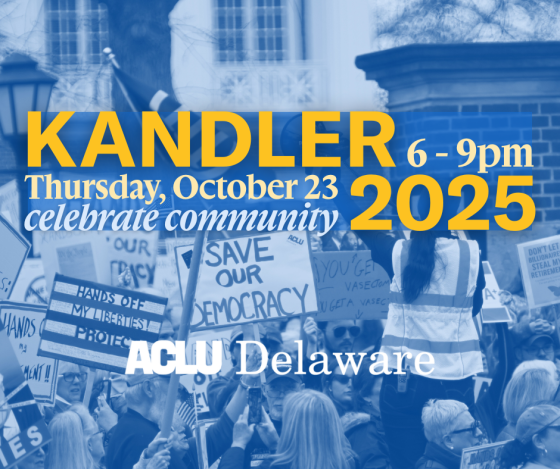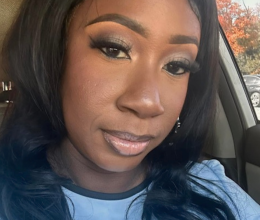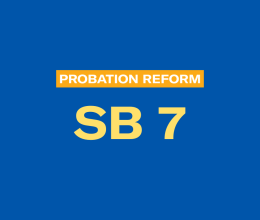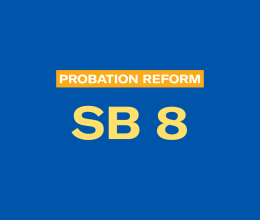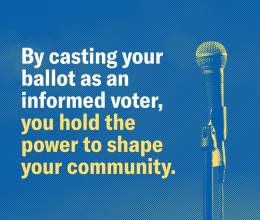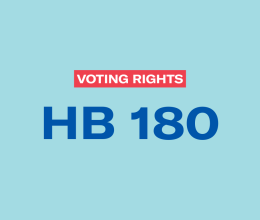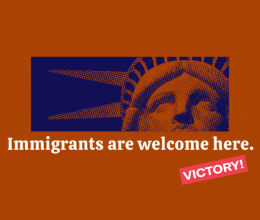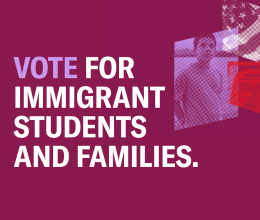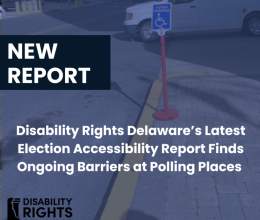
UPDATE: Thanks to your response, the Delaware State Senate voted by a large majority to pass HB 9 in the final days of the legislative session. This was the “first leg” of the constitutional amendment process. In order for the provisions of HB 9 to become part of the Delaware Constitution, a bill identical to HB 9 must pass in the next General Assembly as well. Thank you for helping take the first steps needed to expand the voting rights of people who were convicted of a felony and paid their debt to society. We look forward to your support again next year. In the mean time, make sure to let your elected representatives know that Delaware deserves expanded participation in our democracy, not restrictions to voting rights.
---------------------------------------------------------------------------------------------------------------------
Expand voting rights by supporting HB 9, the Hazel D. Plant Voter Restoration Act.
The ACLU believes that in a democracy—voting is a right—not a privilege. Any effort to block felons or ex-felons from voting —in fact, any effort to erect barriers to voting for any citizen—is unfair and undemocratic.
The Delaware General Assembly is now considering House Bill 9 that would make it easier to restore the voting rights of some people who have been convicted of a felony.
PUSH FOR REFORM
House Bill 9, known as the Hazel D. Plant Voter Restoration Act, would amend the state constitution to eliminate the five year waiting period for reinstatement of voting rights. This change does not go far enough—but it is a step in the right direction.
Contact your State Senator in Dover easily by clicking the ACT NOW button. The information you submit will be sent directly to your Senator urging them to support the expansion of voting rights for their constituents.
Sponsors of the bill include:
- Representatives
- Keeley
- Johnson
- Scott
- Bolden
- George-Smith
- Kowalko
- Mitchell
- Mulrooney
- Schooley
- Senators
- Henry
- Venables
Because it is a constitutional amendment, the bill needs to pass this year and then again in the next 147th general assembly beginning in January 2013.
IT MATTERS
Laws that make it difficult or impossible for felons to vote have a wide-ranging impact. Those convicted of a felony are not the only ones who lose political representation as a result of stringent disenfranchisement policies.
Studies show that many of those convicted of felonies come from the same inner-city neighborhoods. As a result, when felons lose the right to vote, it weakens the political power of the entire neighborhood—including the power of the residents who have never committed a crime.
In Delaware, blacks represent about 21% of the general population, yet they account for 42% of those arrested for criminal offenses and 64% of the prison population.
Individuals who vote generally help to make their communities safer and more vibrant by giving to charity, volunteering, attending school board meetings, and serving on juries. Research also shows that individuals who vote are less likely to be rearrested.
Reintegration into society is essential to community safety and the reduction of recidivism among those who commit crimes. Restoring the right to vote helps reintegrate people with criminal records into society and also strengthens our democracy. Conversely, withholding the right to vote, fosters a sense of exclusion and disconnectedness.
Voter enfranchisement is a big deal.
DELAWARE DISENFRANCHISEMENT TOPS MOST STATES
Each state has its own laws on disenfranchisement—the barring from voting in elections. In 2004, Delaware disenfranchised 7.5% of its voters making it second in the nation for the highest percentage of disenfranchised voters.
Delaware’s restrictive felony voting laws demand citizens convicted of a felony meet:
- a five year waiting period after completion of sentence
- an obligation to repay all fees and restitution—which disproportionally impacts the poor
And some convicted felons are never allowed to vote again including those convicted of murder, manslaughter, a sexual offense, or an offense such as bribery of a public official or abuse of a public office.
Felony disfranchisement disproportionately impacts people and communities of color. Increasingly, the ability of communities of color and low-income communities to gain political representation and influence—and the access to public resources that accompany this influence—is being thwarted by this country’s race to incarcerate.
